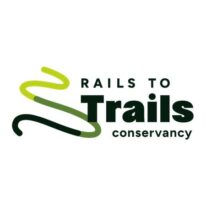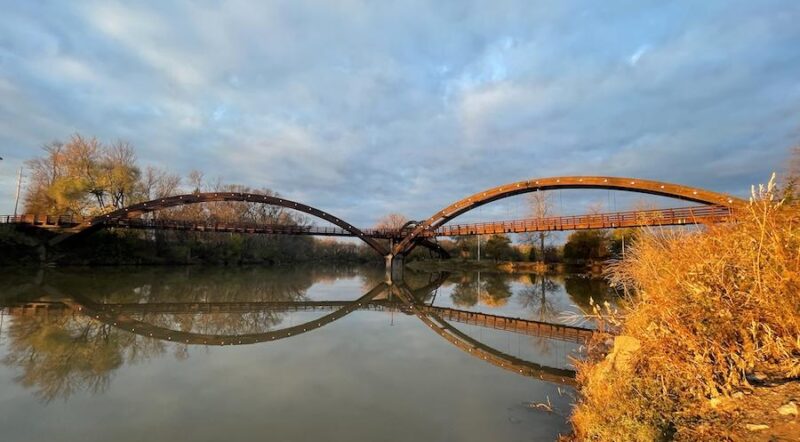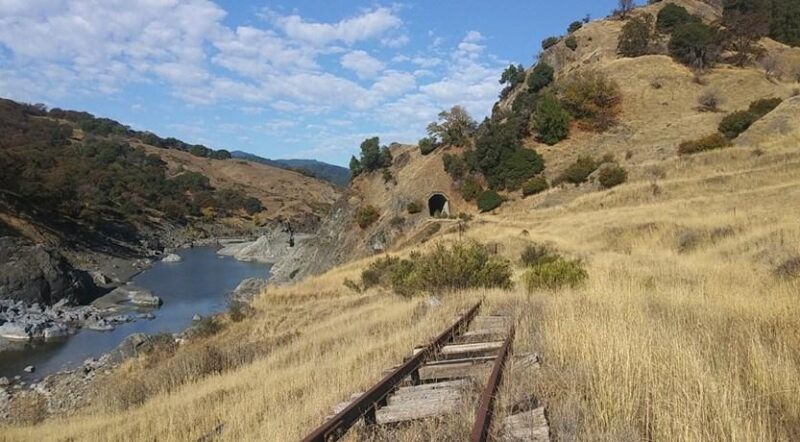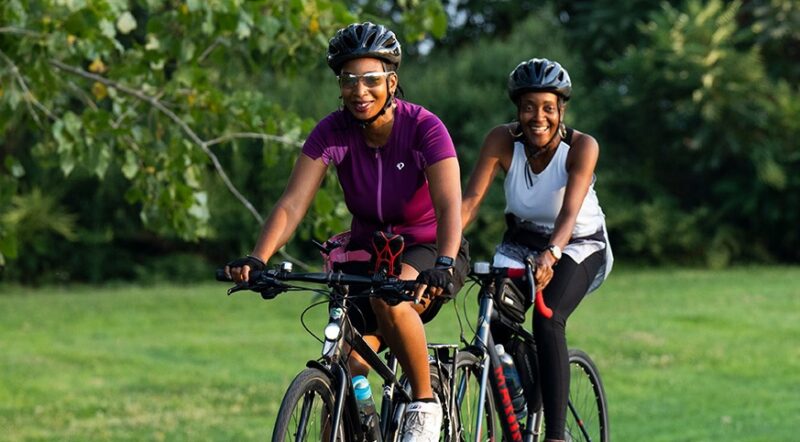FY 23 Raise Grants Illustrate Transformative Impact of Connected Trail, Walking and Biking Infrastructure in Rural, Suburban and Urban Communities Nationwide
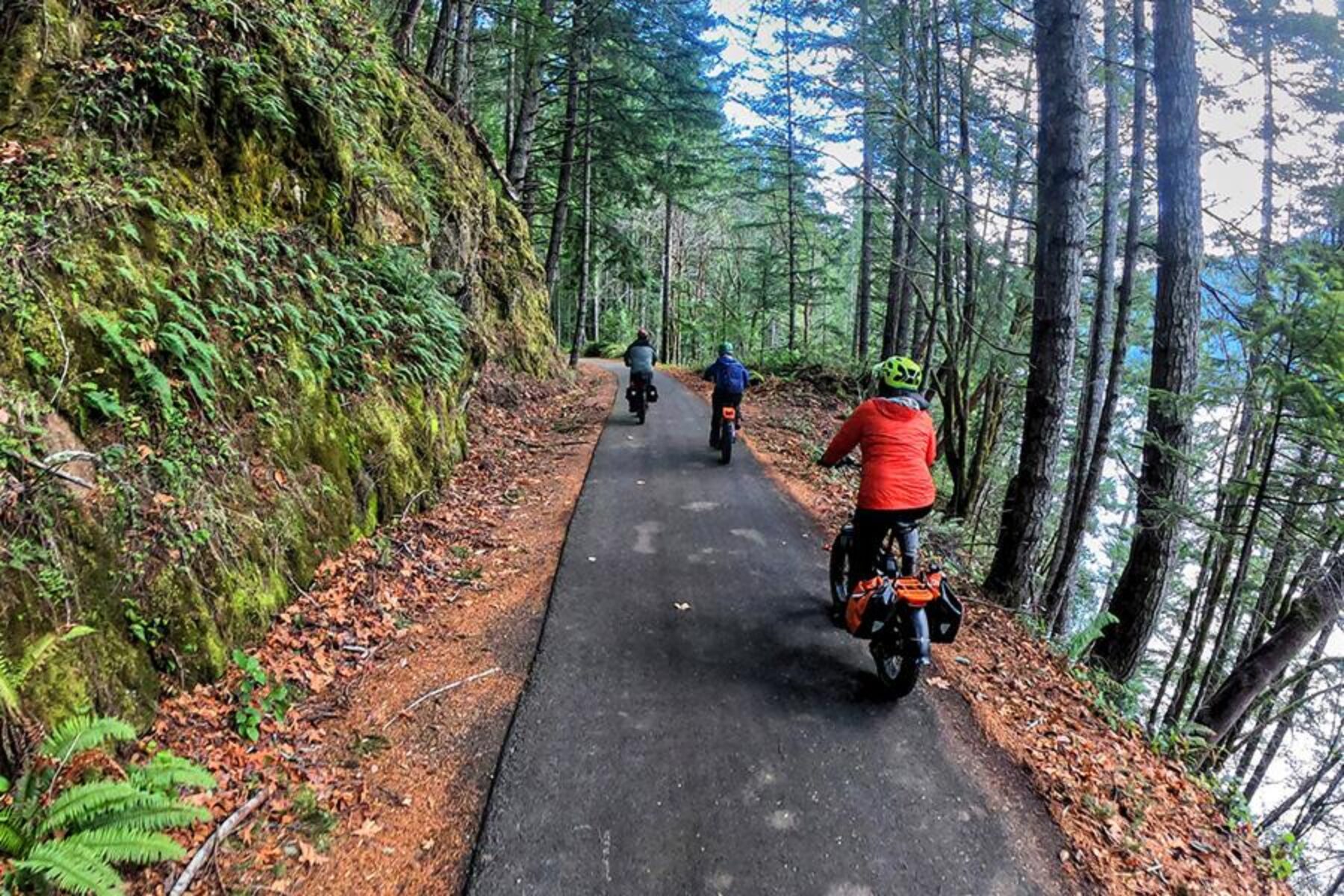
FOR IMMEDIATE RELEASE:
June 28., 2023
CONTACT:
Brandi Horton, brandi@railstotrails.org, 202.974.5155
FY 23 Raise Grants Illustrate Transformative Impact of Connected Trail, Walking and Biking Infrastructure in Rural, Suburban and Urban Communities Nationwide
The U.S. Department of Transportation’s FY 23 RAISE grants mark greatest focus yet on trails, walking and biking, funding trail and active transportation projects in nearly every state in the country and emphasizing investments that create connected active transportation systems.
WASHINGTON, D.C.—In an analysis of the FY 23 U.S. Department of Transportation (USDOT) RAISE Grants, Rails-to-Trails Conservancy (RTC), the nation’s largest trails and active transportation advocacy organization, found that this round of funding marks the program’s most far-reaching commitment to connecting people and places by trails and other active transportation infrastructure. Grants that support the needs of bicyclists and pedestrians were distributed in 48 states and Washington, D.C.
The scale of investments—representing portions of 80% of the total projects funded—illustrates the significance of creating and connecting walking and biking infrastructure in every region of the country. In addition, many of the projects awarded prioritize connectivity, showcasing the need to create safe, convenient walking and biking routes so people can get where they need to go whether or not they drive.
“For years we have documented exponential growth in demand for safe, connected active transportation systems across the country. In hundreds of communities of every type there are plans to create trail and active transportation networks that connect people to the places they want to go—like schools, shopping and jobs—and opportunities to be active outdoors,” said Kevin Mills, RTC’s vice president of policy. “With this round of RAISE grants, USDOT has acknowledged that this infrastructure is fundamental to the mobility, health and well-being of people, places and the planet, and that connectivity is what makes the difference.”
Nearly $400 million granted in this round of USDOT’s competitive, multimodal Rebuilding American Infrastructure with Sustainability and Equity program is being invested to solely fund bicycle and pedestrian projects.
Among the awards were several significant trail network projects across the country, which are working to create new access to safe spaces where people can walk, bike and be active outside, particularly in underserved and historically disadvantaged communities. The Capital Trails Network received a $25 million grant to advance the trail network in Prince George’s and Montgomery Counties in Maryland and Washington, D.C.; the LINK Trail in Camden County, New Jersey received $19 million, which is a spine trail for the 850-mile Circuit Trails network in greater Philadelphia and southern New Jersey; and the Puget Sound to Pacific initiative received a $16.1 million planning grant to connect the Olympic Discovery Trail across Washington’s rural Olympic Peninsula, which is the western terminus of the cross-country Great American Rail-Trail®, and Kenosha, Wisconsin was awarded $5.6 million to complete an extension of the Kenosha County Bicycle Trail, a planned project of the Route of the Badger trail network that seeks to connect over 700 miles in southeast Wisconsin.
Each of these projects is part of RTC’s TrailNation initiative, a nationwide effort to catalyze trail and active transportation networks for millions of Americans. Other noteworthy trail and active transportation network investments include Russellville, Arkansas, the Barren River Area Development District in South Central Kentucky, and Chapel Hill, North Carolina among nearly two dozen total.
“This investment in connectivity marks a cultural evolution in the prevalence and relevance of active transportation in this country,” said Mills. “This is a testament to the impactful role that trail networks can play in addressing issues of safety, equity and climate resilience, while delivering quality of life benefits and economic opportunity in all types of communities. To realize the full potential of active transportation, we need to sustain increased levels of investment so that communities across America can count on funding to build out their plans to provide equitable access to safe places to walk and bike.”
Nationwide, RTC has seen plans amounting to more than $10 billion of unmet need for projects that connect trail and active transportation infrastructure. According to RTC, fulfilling these plans would be transformative, with the potential to equitably deliver economic, health, safety and climate benefits. To realize these benefits, communities need sizeable grants—like those that RAISE can provide—to close gaps between existing sidewalks, bike lanes and multiuse trails to create seamless walking and biking routes that connect where people live and the places they go routinely. Current discretionary and dedicated federal programs deliver significant investment for trails, walking and biking, but many communities will not take advantage without reliable funding at sufficient scale focused on active transportation. The far-reaching demand for trails and other walking and biking infrastructure calls for programs that exclusively fund active transportation to ensure consistent progress over time in creating safe and convenient routes to daily destinations in communities nationwide.
“With these grants, USDOT has demonstrated its understanding that trails, walking and biking are fundamental to transformative and equitable community design that improves our quality of life. Looking ahead, it’s increasingly evident that there is a need for sustained investment in connected active transportation infrastructure as well as focused programs to fund these projects like we have for rail and roads. Greater investment in focused grants to connect trails and other walking and biking facilities would deliver safe, equitable mobility to more Americans,” said Mills.
RTC advocates for transformative policy changes that increase funding for active transportation and create accountability for progress on climate, equity and safety, such as the Active Transportation Infrastructure Investment Program (ATIIP). This new program provides dedicated funding for the planning and construction of safe and connected active-transportation networks and long-distance spine trails. The program was authorized in the Bipartisan Infrastructure Law and received its first appropriation in the Fiscal Year 2023 federal funding bill. RTC, Congressional champions and partners across the country are continuing to advocate for full program funding in the FY 2024 federal budget.
Learn more about the demand for trails, walking and biking infrastructure and available federal funding at railstotrails.org/funding.
Rails-to-Trails Conservancy is the nation’s largest trails organization—with a grassroots community more than 1 million strong—dedicated to building a nation connected by trails, reimagining public spaces to create safe ways for everyone to walk, bike and be active outdoors. Connect with RTC at railstotrails.org and @railstotrails on Facebook, Twitter and Instagram.
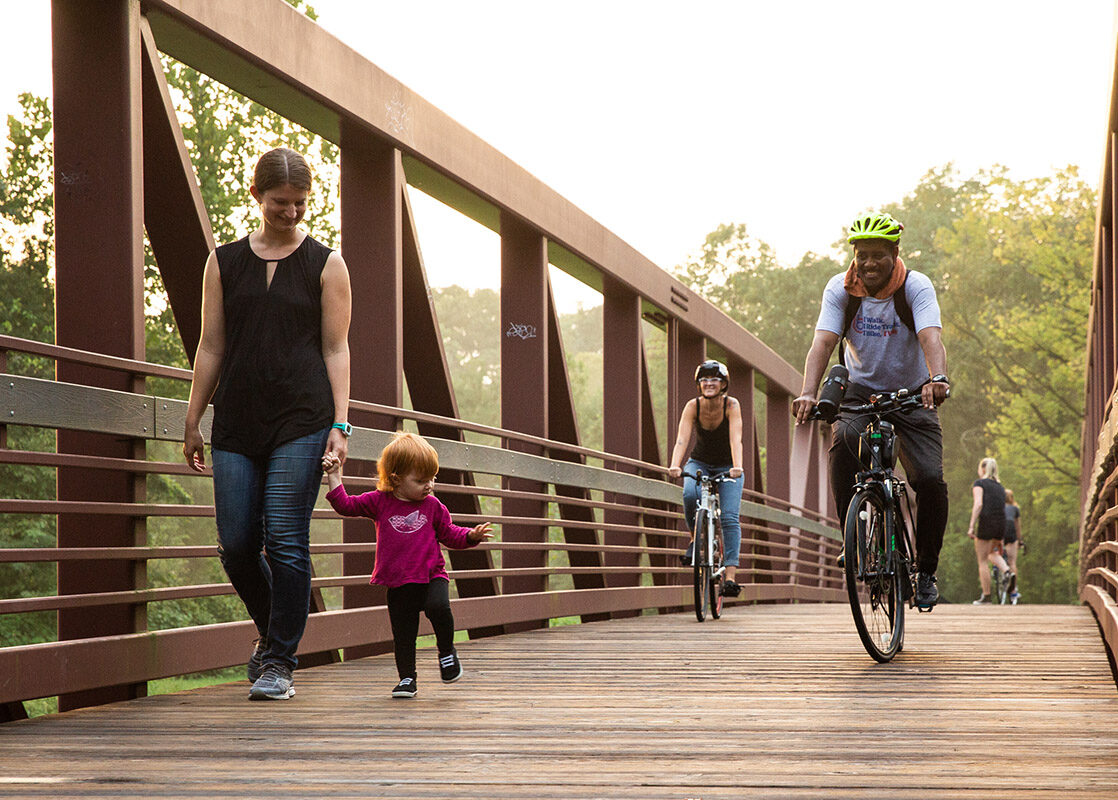
Donate
Everyone deserves access to safe ways to walk, bike, and be active outdoors.
